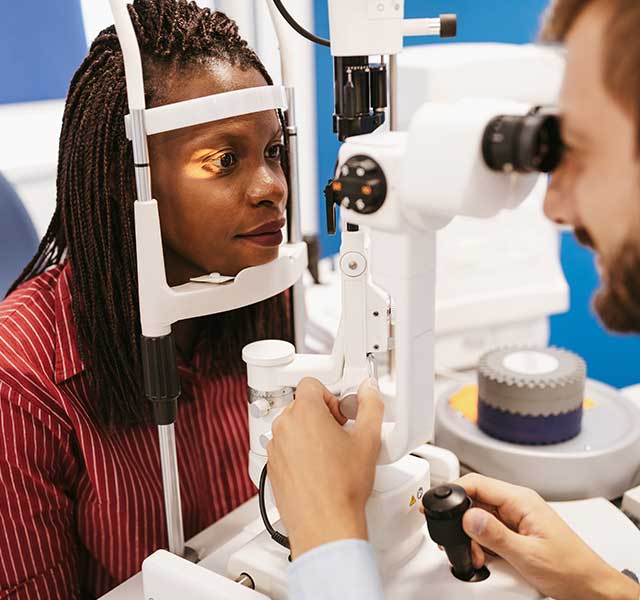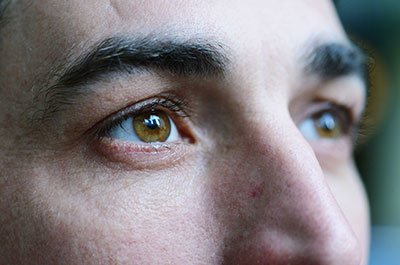Your immune system protects your body by attacking germs that can cause infection. Autoimmune diseases occur when the immune system mistakenly attacks healthy cells in the body, including the eyes.
Autoimmune attacks on the eyes can cause redness or pain, sensitivity to light, dry eyes and blurry vision. But early diagnosis, treatment and follow-up care can help prevent vision loss from autoimmune disease.
“There are a variety of medications, including new targeted treatments, to help manage chronic eye problems associated with autoimmune diseases,” says Paul Edwards, M.D., an ophthalmologist at Henry Ford Health.
How Autoimmune Diseases Impact The Eyes
There are more than 80 types of autoimmune diseases. Some are more likely to impact eyes and vision:
1. Ankylosing spondylitis
In addition to causing inflammation in the spine, this disease can also cause severe inflammation in the eyes. Symptoms include painful eyes and sensitivity to light. People who have ankylosing spondylitis are also at risk for glaucoma, where increased eye pressure damages the optic nerve and reduces vision.
2. Graves’ disease
This autoimmune disease affects the thyroid gland and causes inflammation in the muscles around the eye. The eyes can become swollen and bulging, causing double vision and eye pain. The lacrimal glands (which make tears) can also become inflamed, interfering with tear production and leading to dry eyes. People with Graves’ disease may have temporary or permanent vision loss.

Eye Care At Henry Ford
3. Juvenile idiopathic arthritis
This disease develops in young children and teens, initially causing joint inflammation. Over time, inflammation also occurs in the eyes, causing dry eyes, eye pain, light sensitivity and difficulty seeing. It can become severe if not treated and monitored.
4. Multiple sclerosis
People with this autoimmune disease can experience pain as they move their eyes. Multiple sclerosis can also cause inflammation in the optic nerve (optic neuritis), leading to temporary or permanent vision loss.
5. Psoriasis
Some people with this skin disorder can also develop arthritis. For these individuals, vision problems include inflammation of the middle layers of the eye (uveitis), which causes redness and swelling.
6. Rheumatoid arthritis (RA)
This autoimmune disorder causes joint inflammation in adults. People who have RA experience dry eyes and thinning of the cornea, the outer layer of the eye.
7. Sjogren’s syndrome
This autoimmune disease causes chronic inflammation of the tear glands and leads to severe dry eyes. People who have Sjogren's syndrome may also get perforations in the cornea.
8. Systemic lupus erythematosus
Lupus can affect multiple organs, including the eyes. It can cause severe inflammation in the blood vessels. As a result, blood vessels can narrow, causing a blockage (eye stroke).
9. Rare autoimmune diseases
Other, rarer autoimmune diseases that impact vision include Behcet’s disease and Wegener's granulomatosis. Both conditions cause inflammation and narrowing of the blood vessels in the eye, increasing the risk of an eye stroke.
Treatment For Autoimmune Vision Problems
Treatment to reduce inflammation in the eye often begins with corticosteroids in the form of eye drops, pills or injections. Your ophthalmologist will monitor your vision during treatment.
Other treatment options include immunosuppressive medications and biological therapies. “With the latest advances in treatments, we can often reduce inflammation quickly and restore vision,” says Dr. Edwards.
When To See An Eye Doctor If You Have An Autoimmune Disease
Dr. Edwards recommends that anyone diagnosed with an autoimmune disease should see an ophthalmologist to evaluate their eye health. You should also see your ophthalmologist if you experience:
- Blurry vision, floaters or other changes in vision
- Dry eyes
- Eye pain
- Light sensitivity
- Redness or swelling of the eyes
Sometimes, vision changes can be early signs of an undiagnosed autoimmune disease. If your eye doctor notices any autoimmune eye symptoms, they can refer you to a rheumatologist or other specialist for further evaluation.
“We work closely with other physicians, including rheumatologists, to develop treatment plans to meet each person’s medical needs,” says Dr. Edwards. “With regular follow-up care, you can maintain your eye health and reduce the risk of vision loss.”
Reviewed by Paul Edwards, M.D., an ophthalmologist who sees patients at Henry Ford Medical Center - Livonia and Henry Ford Hospital in Detroit.



